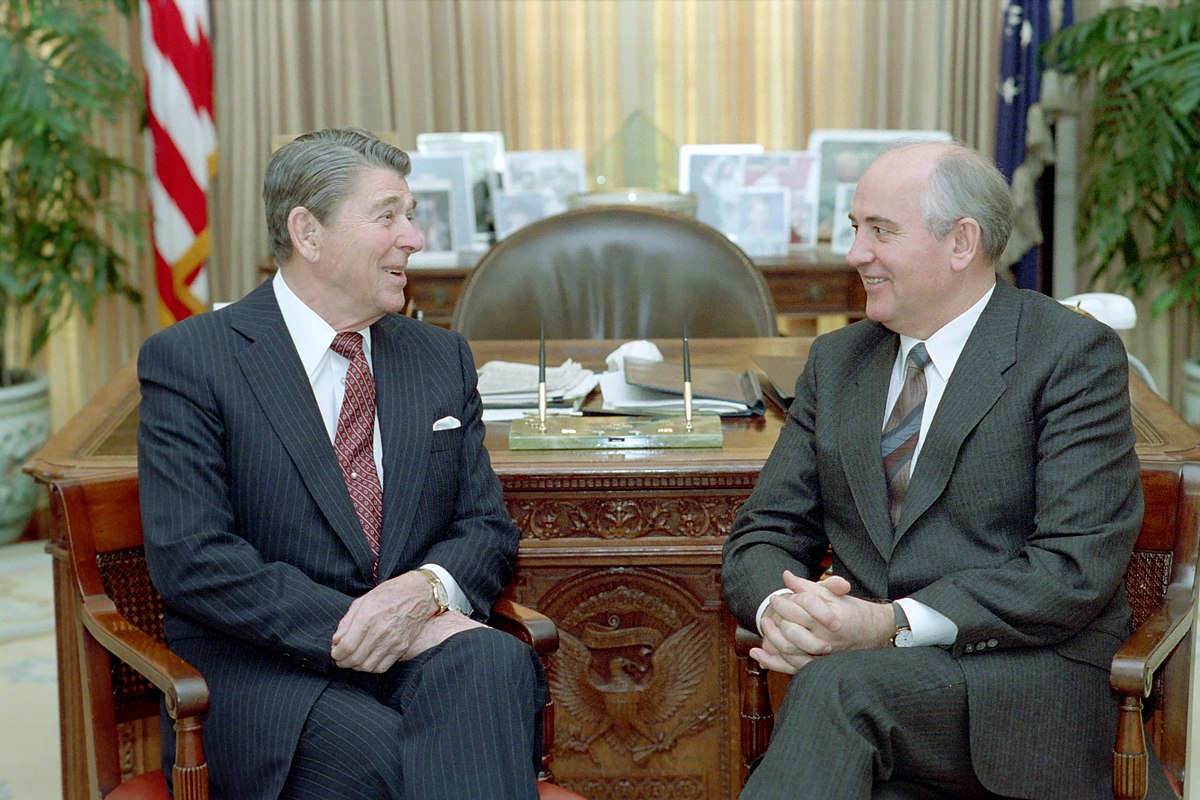“The challenge of statesmanship is to have the vision to dream of a better, safer world and the courage, persistence, and patience to turn that dream into a reality.”
President Ronald Reagan
This quote is from Martin and Annelise Anderson’s, Reagan’s Secret War: The Untold Story of His Fight to Save the World from Nuclear Disaster. Using President Reagan’s own words from diary entries and previously classified documents, the Anderson’s demonstrate how Reagan and Gorbachev bucked entrenched Cold War nuclear paradigms to forge a radically new approach.
The Anderson’s provide a fascinating window into how President Reagan determinedly pursued his vision for a nuclear free world. It is an eye-opening complement to Paul Lettow earlier look on the subject, Ronald Reagan and his Quest to Abolish Nuclear Weapons. Together, these books confound popular Reagan mythology from both the right and the left.
President Barack Obama’s April speech in Prague where he proposed eliminating nuclear weapons would not have been possible were it not for the leadership shown by President Reagan and Soviet General Secretary Mikhail Gorbachev two decades before.
The 1980’s were risky times in U.S. – Soviet relations. Reagan’s first term ‘Peace through Strength’ policy and Pershing missile deployment in Europe had the world worried of pending nuclear disaster. Deep distrust between ‘worst-case factions’ within each other’s government kept both nations on a razor’s edge.
With Mikhail Gorbachev’s rise to power during Reagan’s second term Reagan grew more hopeful. Both leaders sent backchannel signals of a willingness to pursue an alternative nuclear course. In a three year span from 1985 through 1988, they made it possible to believe that not only was a nuclear weapons free world necessary, but that it was achievable.
The nuclear policy revisions promoted by Reagan and Gorbachev went against the advice of their aides, their militaries, and many of their allies. It took unheard of self-assurance and confidence for these men to battle the institutionalized policy of Mutual Assured Destruction after decades of widespread acceptance.
From their first face-to-face meeting in Geneva in 1985 came this shared statement: “A nuclear war can never be won and must never be fought.” Both Reagan and Gorbachev would return time and time again to this touchstone during their tenures to remind themselves and their staffs of a higher purpose.
Following Geneva was the historic summit at Reykjavik, Iceland in 1986. At Reykjavik the two leaders came within two words of agreeing to the total elimination of nuclear weapons for all time. While in the end they failed to achieve such an agreement, their near success gave hope to the world that a nuclear free world would one day be within reach.
Discussions at Reykjavik led to the Intermediate Range Nuclear Force Treaty (INF). This groundbreaking treaty required both sides to make significant nuclear weapons reductions. It was the first reduction agreement since the beginning of the nuclear arms race forty years earlier. The INF treaty achieved the removal and dismantling of intermediate range nuclear weapons from Europe.
The INF was followed by the Strategic Arms Reduction Treaty (START) which was completed during Bush Senior’s presidency. START called for even broader nuclear weapons reductions and forged a hard won consensus on treaty verification mechanisms. Effective treaty verification regimes are a prerequisite for common security in a nuclear weapons free world.
Twenty years later, and five years from Ronald Reagan’s memorable funeral, it is time to pick up the legacy of hope Reagan and Gorbachev left to us. The humanity of Reagan’s nuclear-free vision went unappreciated by many during his lifetime, and we owe him a reexamination of his transformational thinking on nuclear weapons policy.
In retrospect, our oldest president now seems more prescient than many of his younger successors. Later from the same conversation with his aides begun above, Reagan continued:
“Our moral imperative is to work with all our powers for that day when the children of the world grow up without the fear of nuclear war.”

